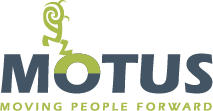Are you a Hiring Manager looking to grow your team? You might be in the interview process, meeting with several candidates, and then you come across a candidate with a gap in their employment. If you are feeling uncomfortable asking candidates about their employment gap, or you just keep hiring the wrong people, you may not be asking the right questions.
No matter the reason you read past my first question, you may benefit from some very simple information, so keep reading.
The first thing you need to know, which may come as a surprise to many of you, is that there is an appropriate and an inappropriate way to ask a candidate about a gap in their work history.
Let’s start with the inappropriate. For instance, “Can you tell me what was going on from December 2016 – January 2018?” This is a risky choice of words, as it could elicit information on protected classifications. Imagine if the candidate answered the question as personally as it was asked: “I had a baby and decided to stay home to raise them for a year. My partner and I felt that it was good for…….” and who knows what other personal information about this candidate has now been opened up without you realizing that your question had elicited the information.
The issue here, and what makes this an inappropriate question, is that even if discrimination is not your intent, it can take shape without you even knowing it. You may have an implicit bias, or subconscious attitude, about their response that you may project onto the candidate. You, the interviewer, may feel that stay at home parents aren’t passionate about their careers or dedicated enough, and need too much time off, and decide not to hire the candidate based on those feelings. Conversely, you might not have any negative feelings towards stay at home parents, but you end up not hiring them based on a lack of experience or skill set needed to perform the job. Either way, because the question elicited an overly personal response, the candidate now has reason to believe they were discriminated against.
Asking about what a candidate was doing during their employment gap does not get you the information you really need, and it risks the chance that you will come across as biased in your decision making. There are many reasons why people have gaps in their employment history, but the truth is that it doesn’t matter why or what the reason is, as much as it matters how qualified they are sitting in front of you today. The bottom line and purpose behind all questioning on this topic is to determine whether or not the candidate is currently qualified, or if the gap left them lacking.
So how do you navigate through these rough waters? Well, as the interviewer, you have it much easier than the interviewee. As the interviewer all you must do, is ask some very simple questions to unfold whether this time away from the industry has distanced them too much from what’s expected now, or not. That being said, let’s move into an appropriate example:
“I see that you had a gap in your employment from December 2016 – January 2018. Can you tell me what you did to stay current on the skills needed for this position?” A question such as this acknowledges the employment gap, skips over the reasoning why, and straight into the information you want—their skills. Another way to word this is, “Can you tell me how you stayed current on industry standards during December 2016 – January 2018?” Either way, it will guide the interview in a more focused direction without the risk of breaching classified information.
Beyond the Question
An important suggestion to consider is that if the employment gap is listed prior to the current role your candidate is in, and their current role is relevant to the position you’re interviewing for, which delineates substantial years of experience, then let the gap go. Most likely it does not matter at this point. Interview as you normally would without focusing on the gap.
If the current role is relevant but they haven’t been in it very long, then use their 3 professional supervisor references as an extended interview, diving much deeper into the details and spending a little more time on it than you normally would. Reference checks should be taken as seriously as the interview. Make sure your reference check questions are direct and detailed regarding the skills they should have advanced experience in in order to do the job without hand holding. You can also mix in questions that will help you understand if the candidate also encompasses the principles or philosophy of your company and team. The idea is, again, to learn information about the candidates skills in spite of their gap in employment. Here are some questions you might ask a candidate’s references:
“Where would you say that the candidate is competent? Can you give me an example of how the candidate’s competency in this area affected their team or a project?”
The answer to this could be negative or positive. This will give you the ability to decide if you think it would be negative or positive in your environment or to ask more questions around the skill.
“What technical skills did the candidate use 80% of the time?”
Instead of asking about vague technical skills you can ask about the specific skills you need them to be above average in for the position and/or skills they specified using every day or being very advanced in. Ask for examples of how they used the skills.
“In what area did the candidate need more supervision on if any?”
This gives insight into where the employment gap may have affected the candidate’s ability to stay current and what particular areas the gap may have affected.
This isn’t Astrophysics or anything, but it can be frustrating to feel like there’s a road block in the interview– asking the wrong questions can lead to an ineffectual interview or the wrong hire. As an interviewer, making sure that you understand how your questioning affects the answers you get, and remembering that the interview doesn’t end with the candidate, could be the key to getting your interview process back on track. So, stay the course, but be open minded. There are a ton of amazing people out there, and one of them is bound to be your company’s perfect fit.










